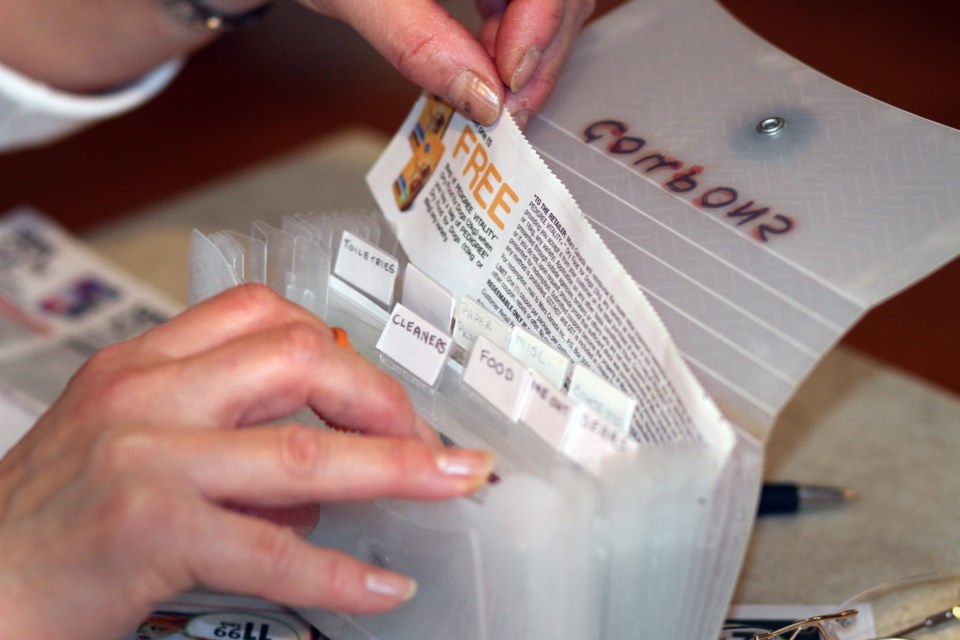Doreen Grandmason and her family discovered financial freedom in the bottom of an old peanut-butter jar.
In 1971, Grandmason was a single mother raising two children. She devised a budget with priorities: mortgage, food, clothing and school.
But the jar became necessary when her son and daughter hit their pre-teen and early-teen years. Grandmason found herself broke, every Monday, whether she had pocketed $10 or $100 the previous Friday.
So she sat her children down every second Friday — payday — she would bring home the money they had left for two weeks.
“When they wanted something, I would say, ‘;Check the jar — can we afford it?’ ” Grandmason told the Times Colonist. “It worked amazingly well and the kids learned to budget, understand priorities and still got all the things they needed.
“And I still saved some every month.”
Grandmason was one of the many Times Colonist readers who sent in penny-pinching tips for the post-Christmas period when household budgets need an adjustment after the free-spending days of December.
January and February are months when many people find themselves behind with bills, credit-card debts or loan payments.
For Scott Hannah, president of the B.C.-based Credit Counselling Society, it’s a well-known phenomenon. Hannah’s organization typically experiences a rise in SOS calls from cash-strapped clients struggling when the post-Christmas bills come due.
Hannah said budget-crunchers have to learn to start taking small steps, such as leaving credit and debit cards at home to avoid spontaneous purchases.
He said savings are often right in front of us. Hannah recently saved himself $15 a month by switching phone plans. That’s $180 a year. Such small savings can help people achieve financial sustainability.
For example, a frequent expense for credit-counselling clients is a lock-up storage bin, running about $80 to $100 a month. But it often turns out the value of the goods in storage is worth less than the cost of the storage locker.
“It doesn’t make sense,” Hannah said. “Sell it.”
But Hannah said it’s also important to be realistic about penny-pinching and budgeting.
New diets and New Year’s fitness resolutions don’t work unless people commit to an overall lifestyle shift toward healthier habits. It’s the same with new budgets, which must realistically account for income and lifestyle.
So Hannah was impressed when he heard of Grandmason’s jar approach to budgeting for herself and her two kids.
The peanut-butter jar involved the children in financial decisions and gave them autonomy to set money priorities for themselves and the whole family. It’s a far more pleasant and sustainable approach for any parent than just always saying no to their kids.
Times Colonist reader Marie Taylor wrote that she has always been good at saving money and living within her means.
Taylor said she puts something into savings every month, even if it’s as little as $10. “It adds up, you know!”
She plants a garden, cans, freezes, bakes her own bread and cooks most of her meals from scratch, buying staples such as flour, sugar and even potatoes in large amounts.
Taylor drives a small car, but lives close to most stores, so she mostly walks or rides a bicycle.
“And I go for a coffee and a little something if I feel somewhat hungry before grocery shopping,” she wrote. “I always purchase more when I am hungry.”
Bonnie Hosokawa is a proponent of “co-operative shopping” to take advantage of better prices on bulk amounts.
“Pool your money and share the goods,” wrote Hosokawa. “This way, everyone can get the variety of groceries they need without having to buy a large bag of, for example, potatoes.”
Barb Boulter remembers the advice of her mother, more than 50 years ago, when Boulter was moving into her first apartment and worried about money.
Boulter wrote that her mother took two pieces of paper and wrote “Needs” on one and “Wants” on the other.
“It’s very simple. She stated: ‘;Never buy anything on the Wants list until everything on the Needs list has been bought and paid for.’ ”
Mark Johansson had several pieces of advice, including:
- Pay with cash
- Pay bills promptly
- Save for the future
- Don’t gamble
“The battle is won when you get out of debt and stay out of debt,” wrote Johansson. “It is essential to your health and well-being and the quality of your relationships.
“If you cannot stick to these rules, marry rich (just kidding — really).”
For more information on budgeting and credit problems, go to the Credit Counselling Society websites, nomoredebts.org and mymoneycoach.ca, or call toll-free at 1-888-527-8999.



